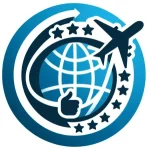Secret Airfares Reviews: Exploring the Truth Behind Airline Ratings
Air travel is a common mode of transportation for millions of people around the world. When it comes to choosing an airline, passengers typically rely on reviews and ratings to make informed decisions. However, not all airline reviews may be as transparent as they seem. In recent years, there has been a growing concern about the authenticity and accuracy of airline reviews, with some critics pointing to the existence of “secret airfares reviews” as a potential factor affecting the credibility of airline ratings.
The term “secret airfares reviews” refers to the notion that some airlines may manipulate or fabricate reviews to present a more favorable image to potential customers. This practice, if true, has significant implications for both passengers and the airline industry as a whole. As such, it is crucial to delve deeper into this issue and understand the potential impact it may have on the travel industry.
The reliability of airline reviews has become a pressing concern in light of the increasing influence of online platforms and social media in shaping consumer behavior. With the proliferation of review websites and social media platforms, passengers now have access to a plethora of information about airlines, including customer reviews, ratings, and recommendations. However, the abundance of online reviews has also raised questions about their authenticity, particularly in light of allegations of fake or manipulated reviews.
One of the main concerns surrounding “secret airfares reviews” is the potential for airlines to game the system by cherry-picking or falsifying reviews to present a rosy picture of their services. This, in turn, could mislead passengers into choosing an airline based on inaccurate information, leading to a subpar travel experience or even safety concerns. Additionally, if airlines are indeed engaging in such practices, it could undermine the credibility of legitimate reviews and erode trust in the entire review system.
Moreover, the impact of “secret airfares reviews” extends beyond the passenger experience to the broader travel industry. Airlines that resort to manipulating reviews may gain an unfair competitive advantage over their counterparts, potentially leading to a distortion of market dynamics. This could create an environment where airlines prioritize image management over improving their services, ultimately compromising the overall quality of air travel.
In response to these concerns, industry watchdogs and regulatory bodies have begun to take action to address the issue of manipulated airline reviews. The U.S. Department of Transportation, for example, has been scrutinizing airline practices related to reviews and ratings to ensure transparency and accountability. Similarly, the European Union has initiated measures to combat fake reviews and ensure that consumers have access to accurate and reliable information when choosing an airline.
Despite these efforts, the challenge of detecting and preventing “secret airfares reviews” persists, and the travel industry continues to grapple with the issue. In this context, it is important for passengers to approach airline reviews with a critical eye and rely on multiple sources of information when making travel decisions. By cross-referencing reviews from different platforms and seeking out independent assessments, passengers can better gauge the reputation and performance of an airline.
Furthermore, passengers can also consider engaging with real travelers on social media or travel forums to gather firsthand insights and recommendations. By tapping into the collective wisdom of fellow travelers, passengers can gain a more well-rounded understanding of an airline’s strengths and weaknesses.
In the long run, addressing the issue of “secret airfares reviews” requires collaboration among airlines, review platforms, and regulatory authorities to uphold the integrity of the review system. This may involve implementing stricter verification processes for reviews, enhancing transparency in review platforms, and imposing penalties for airlines found to be engaging in manipulative practices. Ultimately, the goal should be to ensure that passengers have access to reliable and impartial information to make informed choices when it comes to air travel.
In conclusion, the existence of “secret airfares reviews” has raised significant concerns about the credibility and transparency of airline ratings. As the travel industry continues to grapple with this issue, it is crucial for passengers to approach airline reviews with caution and seek out multiple sources of information. By promoting greater transparency and accountability in the review system, the industry can uphold the trust of passengers and foster a fair and competitive market for air travel.

